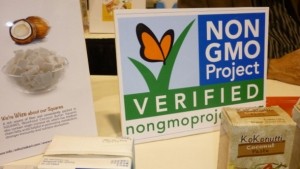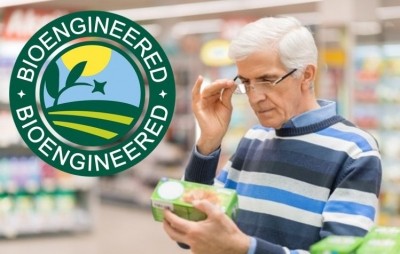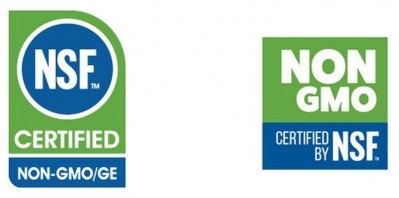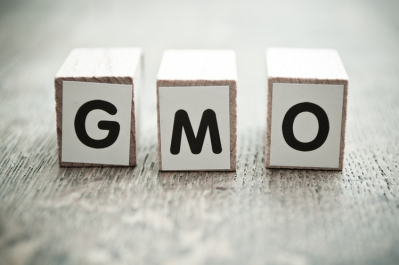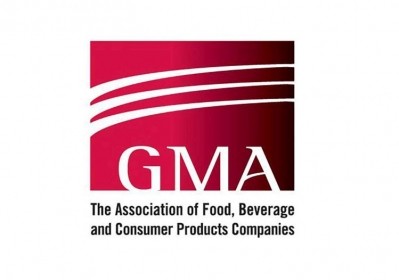The Non-GMO Project may emerge as the big winner from federal GMO labeling legislation

USDA – which has just published a proposed rule establishing a National Bioengineered Disclosure Standard and hopes to finalize its plans "later in the year" - is currently fielding comments on how broadly to interpret the term ‘bioengineered’ for food labeling purposes.
However, it has already made it clear that the definition excludes meat and dairy from animals fed GM feed, that it exempts gene-edited crops, and may also exempt highly refined oils and sweeteners made from GM crops such as soybean oil and high fructose corn syrup if they contain no detectible modified DNA.
Given that thousands of products that have been produced with genetic engineering at some stage in their development may therefore not be subject to mandatory GMO labeling under the proposed rule, consumers that care about this issue will in reality continue to look for the butterfly logo when they go shopping, claimed Westgate.
“We feel assured based on this draft [proposed rule] that the Non GMO Project is more relevant than ever. We certainly want to contribute to supporting this standard in being as meaningful as possible but there is no way it will have the level of rigor and transparency that the Non GMO Project butterfly offers to consumers.”
“From a personal perspective, I have a four year old and a one year old and when I go shopping there is no way I’m going to be scanning barcodes. I just want plain English on the label.”
Megan Westgate, executive director, The Non GMO Project, a non-profit that works with third party technical administrators who certify products according to the Project's standards for a fee, including NSF International, FoodChain ID, SCS Global Services, and Where Food Comes From Inc.
The definition of bioengineered is too narrow
She added: “If something was produced using biotechnology, consumers expect it to be labeled, that there isn’t some magical way to make it not a GMO due to limitations in definitions or testing methodologies. Transparency is a huge trend and it’s a losing proposition for any food company to be hiding things from their shoppers.
“We strongly advocate that they [USDA’s agricultural marketing service] should use the Codex definition of biotechnology – it’s a broader definition and what the WTO looks to in resolving international trade disputes for example.
“Many of the newer genetic engineering techniques are also not covered in [USDA’s] proposed definition – things like CRISPR and RNAi [Ribonucleic Acid Interference or gene silencing]- although there appears to be some misalignment on this, as in the lists USDA provided of highly adopted and just commercialized GM crops in its draft rule [to help industry determine which ingredients may be impacted] it has included apples and potatoes that have been developed using RNAi techniques.
“We’re also concerned about exemptions where GMOs can’t be detected, such as in highly refined products, which is why we require testing to be done at an earlier stage, so you have to go back to the meal or a crude oil that these ingredients came from.”
More questions than answers
Along with many food industry stakeholders, Westgate said she was surprised by the lack of detail in the proposed rule, which repeated many of the questions – without answering them - that had been issued by USDA previously during its initial round of questioning.
“It’s more what you’d expect in an advanced notice of rulemaking than what you’d expect in a final rule, which makes it hard to develop comments in some areas.”
‘They have invented an acronym that literally I have never seen used in the food industry'
As for disclosure, The Non GMO Project strongly objects to the use of the term ‘bioengineered,’ along with the accompanying ‘BE’ logo, which was meaningless to shoppers, claimed Westgate.
“Bioengineering really is a medical term. It’s not a term that’s used in the food space or by the public. They should use terms that the public recognizes [ie. GMO] or it is fundamentally misleading, and as for the BE symbols, they have invented an acronym that literally I have never seen used in the food industry in 11 years. Who is going to see that and think it means GMO? As for the symbols, they are also meant to be neutral, but they are literally smiling and winking.”
As for the option to scan a QR code or text a number to receive information about bioengineered ingredients, while some shoppers may find extra information useful, most consumers who care about this issue just want to know at a glance if a product was made with GMOs or not, she claimed.
“From a personal perspective, I have a four year old and a one year old and when I go shopping there is no way I’m going to be scanning barcodes. I just want plain English on the label.”
More than 50,000 products have been Non GMO Project verified
To date, more than 50,000 products have been through the Non GMO Verification process, with growing interest from producers of animal products (meat and dairy) and ingredients suppliers, which also helped to speed up the verification process for packaged food companies using these ingredients, said Westgate.
“Some companies new to this are still surprised by how rigorous the standard is and how much work is involved, but the difference [vs when the scheme launched] is that companies don’t question that it’s worth it now.
"In many cases what we hear especially in the natural channel, is that start-ups are saying this is what you have to do to enter the game, retailers won’t even talk to us if we’re not verified.
“But we’re also seeing increasing participation outside of the natural products sector, we’re seeing demand for this go mainstream.”
Further reading:
- USDA proposed rule on GMO labeling raises more questions than answers
- First wave of stakeholders weighs in on ‘bioengineered’ labels: 'Exemptions make the useless rule even more useless...”
- Read the proposed rule in full.
- Read the comments submitted on the proposed rule to date. The deadline for submissions is July 3.
If new GMO labeling rules do not cover scores of foods that consumers know are from GM crops, from gene edited non-browning Arctic apples to highly refined soybean oil, there will be a "bright future for third party certifications" such as the Non-GMO Project, said Andrea Bruce, Hershey senior counsel, global regulatory law at The Hershey Company.
Speaking at the American Conference Institute (ACI) food law conference in Chicago in April, she noted that federal GMO labeling legislation does not include a definition of Non-GMO or ‘Non-Bioengineered,’ adding: “It doesn’t define one of the most compelling claims in food marketing today."


